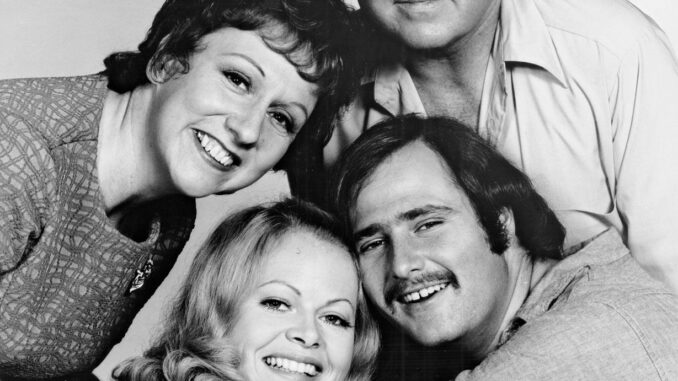
All in the Family changed the face of television with its bold storytelling, controversial topics, and unforgettable characters. Discover what made this groundbreaking sitcom a true icon.
How All in the Family Redefined American Television Forever
When All in the Family premiered in 1971, few could have predicted just how deeply it would alter the television landscape. Gone were the days of sugar-coated sitcoms. In their place stood a show that dared to reflect real America—with all its humor, tension, and uncomfortable truths.
The series didn’t just entertain; it revolutionized. Tackling issues like racism, sexism, war, and generational clashes, All in the Family sparked conversations across the country. Audiences weren’t just laughing—they were thinking, arguing, and sometimes even changing.
A Sitcom That Wasn’t Afraid to Get Serious
At the heart of the show was Archie Bunker, portrayed brilliantly by Carroll O’Connor. Archie was a working-class conservative with loud opinions and outdated beliefs. He was often wrong, but always human—making him a mirror for millions of viewers grappling with a changing world.
Unlike previous sitcoms that avoided controversy, All in the Family embraced it. The show featured characters with opposing views, allowing debates to play out in living rooms across the nation. It didn’t lecture—it provoked.
Breaking Every Rule in the Book
From its opening scene featuring Archie and Edith at the piano, the show let viewers know this wasn’t business as usual. It used laughter not as a distraction, but as a delivery system for hard truths. The language was blunt, the humor was raw, and the reactions were real.
Topics like menopause, gun control, homosexuality, and workplace inequality—once considered taboo—were front and center. And the ratings proved that America was ready to confront these issues, at least through the safety of a sitcom lens.
A Lasting Cultural Impact
All in the Family opened the door for shows like The Jeffersons, Maude, and Good Times—all of which spun off from its universe. It proved that television could be both popular and powerful, funny and fearless.
The series also inspired generations of TV writers and producers to take risks. Without Archie Bunker, there would be no Homer Simpson, no Michael Scott, no Roseanne Connor. The idea that flawed, real characters could anchor a show starts with All in the Family.
The Legacy Lives On
Even decades later, All in the Family remains relevant. Its themes still resonate, and its influence is felt in modern sitcoms and dramas alike. It wasn’t just a hit show—it was a cultural turning point.
What made All in the Family truly iconic wasn’t just its boldness. It was its honesty. By showing people as they were—conflicted, biased, evolving—it gave audiences permission to laugh, cry, and grow. And television was never the same again.